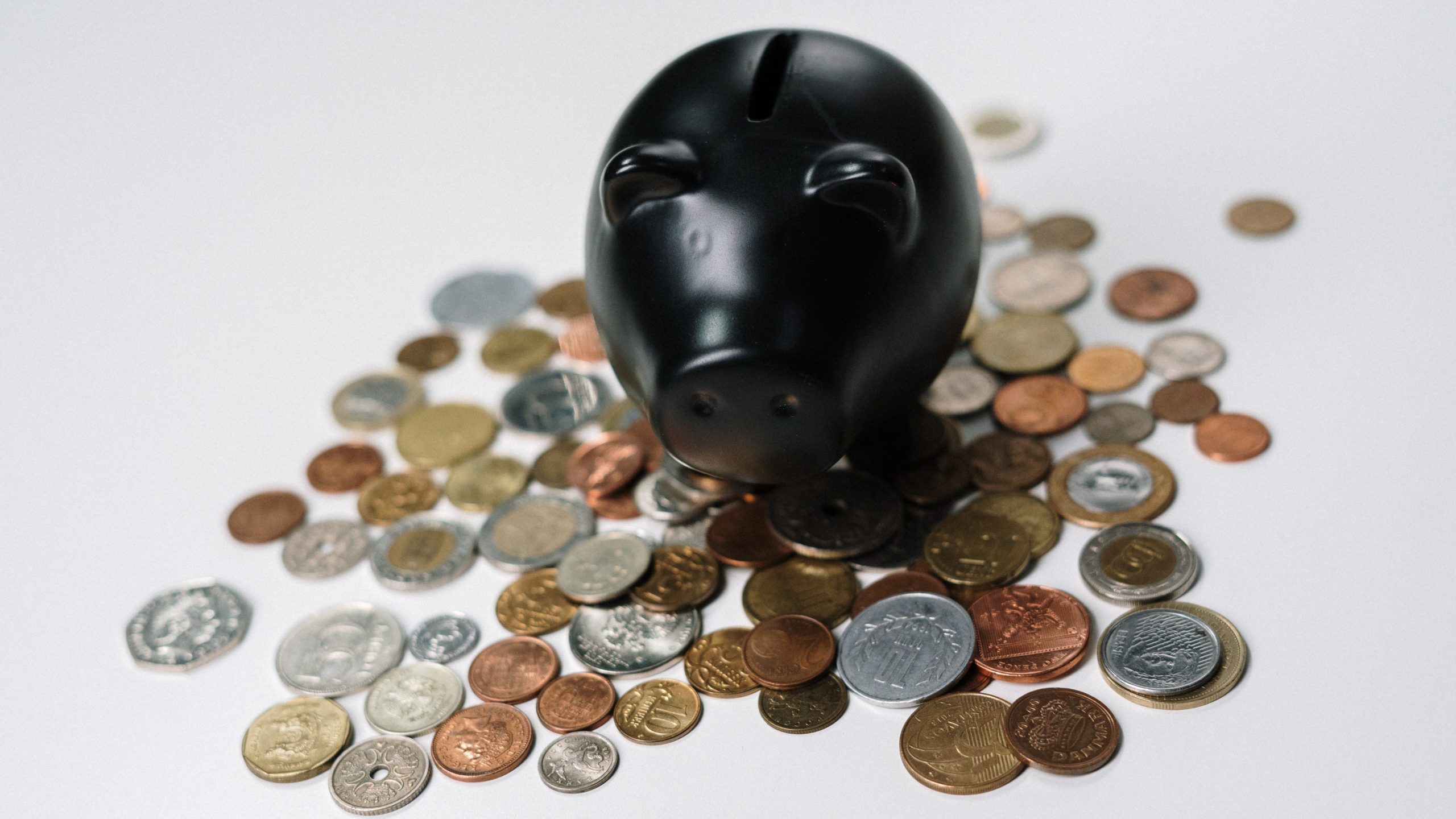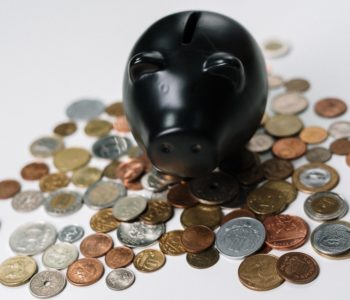Money idioms in English give us a way to talk about finances using different expressions. Idioms about money can relate to earning, spending, saving and losing money, as well as your general financial state.
This list of common idioms about money includes definitions and example sentences so you can see exactly how to use them.

Money Idioms
Idioms about making (or losing) money
First of all, we need to make some money. The following idioms refer to earning money or generating income:
Make a killing
If you make a killing on something, you make a lot of money from it very quickly and often without much effort.
“I made an absolute killing in the import business when I was young.”
A similar money idiom is make a fast buck. You can read about this on our page about fast idioms.
Cash cow
A cash cow is a scheme or business operation that provides a steady and dependable source of income.
“I didn’t know that this investment would turn out to be a cash cow.”
Quids in
This money idiom is more of a British saying. A ‘quid’ is a British term for a pound (sterling) and if you are quids in, you are in a profitable situation or stand to make a lot of money from something.
“Kyle is quids in after investing in cryptocurrency.”
Sell like hot cakes
If you’re in the business of selling products, you want them to sell like hot cakes. It means the items are very popular and sell quickly.
“The new earrings I designed are selling like hot cakes.”
This one also features on our list of hot idioms.
Cut your losses
If you feel like you’re losing money on something that won’t succeed, you might want to just cut your losses. This money idiom means you stop doing something that is already failing in order to avoid further loss.
“I had invested so much time and money in the business but it’s clear it wasn’t going to work out so I decided to cut my losses.”
Take to the cleaners
When it comes to money, you don’t want to be taken to the cleaners. This means that someone has taken a lot of your money or scammed, swindled, or cheated you, causing you to lose almost everything.
“I realized just in time that the salesman was trying to take me to the cleaners.”
Interesting a lot of phrases that sound like idioms about cleaning are actually about something else entirely.
Out of pocket
If you’re left out of pocket from something, it means you have lost money on it.
“I’ll never trust Paul again. He convinced me to invest in this scheme but it’s left me hundreds of dollars out of pocket.”
Hit the jackpot
This is something you might do in a casino or when playing the lottery, but it can be a more general idiom for success in life.
To hit the jackpot in a game or contest means to win the largest prize available. Otherwise, it means to achieve great success, sometimes unexpectedly, usually in terms of financial success.
“I couldn’t believe it when I found out our ticket had hit the jackpot!”
“After years of trying different business ventures, I hit the jackpot with this one.”
Money doesn’t grow on trees!
Money doesn’t grow on trees is less of a money idiom and more of a saying, but it’s still a good one to know. When people say this, they mean that money doesn’t come from nowhere; you must work hard for it.
“My daughter Martha wants to buy a new phone, but I’ve told her money doesn’t grow on trees!”
Idioms about saving money
Next up, these finance idioms are specifically about saving money. Some of these also appear on our list of idioms about the future.
Tighten your belt
If you’re spending too much, it might be time to tighten your belt. This means you become more thrifty and frugal.
“We’re going to have to tighten our belts if we want to make a profit this year.”
Save for a rainy day
To save for a rainy day means to save money for some unplanned event or emergency in the future.
“I try to save 5% of my salary each month for a rainy day.”
This is one of many rain idioms you can use in English.
A penny saved is a penny earned
Again this is a saying more than a money idiom, but it means that it’s important to save money and not just spend everything you earn.
“I’m trying to encourage my cousin to open a regular savings account. After all, a penny saved is a penny earned.”
Money idioms about spending
Enough of saving, let’s turn our attention to spending now:
Splash out on something
If you splash out on something, you make a significant purchase or spend a lot of money, often on a luxury.
“Why shouldn’t I be allowed to splash out from time to time?”
“I just went shopping with my boyfriend and he splashed out on a beautiful new dress for me.”
This is just one of many shopping idioms that describe extravagant or impulsive spending behavior.
On a shoestring
If you do something on a shoestring (budget), you are spending as little as possible on it. This may be through necessity, or just because of careful budgeting.
“It’s so sad to see the whole family living on shoestring.”
“I’m planning to travel the world on a shoestring budget.”
This is often used as a travel expression.
Money to burn
People who have money to burn have a lot of disposable income (spare cash).
“Stop acting like you have money to burn! You still have to pay your rent for this month.”
This is just one of many idioms about burning and fire that you can use in English.
Set you back
When you talk about how much something set you back, you’re talking about how much it cost you.
“Did your new watch set you back much?”
“No, it’s a fake, it only set me back $20.”
It may be used without a reference to the amount of money, in which case it means ‘cost a lot’.
“Sarah’s new car must have set her back.”
There’s no such thing as a free lunch
This free idiom is actually saying that nothing is really free in life. When someone comments that there is no such thing as a free lunch, they mean that even if something is offered for free, there is probably a hidden cost or other strings attached.
“I’d be wary of that deal if I were you. There’s no such thing as a free lunch.”
Cost an arm and a leg / cost the earth
Something that costs an arm and a leg is very expensive, perhaps costing more than the fair market price or more than you think is reasonable.
“I hope she likes this necklace; I paid an arm and a leg for it.”
Cost the earth is another money idiom with a similar meaning.
While we are on the topic of valuations, you may want to learn about the difference between valuable and invaluable. Hint: they are not opposites!
Dirt cheap
If something is dirt cheap, it is relatively inexpensive and good value for money.
“These t-shirts are dirt cheap so let’s buy five!”
On the house
A business or company may offer you something on the house, which means that it’s free of charge.
“Happy birthday! This drink’s on the house.”
This also appears on our list of drink idioms since it’s often said at bars or restaurants.
Fork out
To fork out means to pay, but usually in a begrudging way. You can also fork over a particular amount of money.
“I had to fork out $1500 to fix my car!”
“I think I need to fork out for a new washing machine. My old one keeps breaking down.”
Wealth and finance idioms
Finally, these idioms about money refer to someone’s general financial situation:
In the black/red
You might refer to your bank balance as in the black. This is a good thing, because it means you’re out of debt. But if you have a negative bank balance or are in debt, you are in the red.
“It feels so good to pay off the final installment on my loan and be back in the black.”
We use black and red in many other color idioms, too.
Make ends meet
To make ends meet means to have enough money for basic living costs.
“The family struggle to make ends meet since the father was made redundant.”
“My son has no trouble making ends meet each month but I hope he’s saving some of his money.”
On the breadline
Someone who is on the breadline has only just enough money to live on.
“We spent several months on the breadline but thankfully we are living more comfortably now.”
Check out more idioms involving food.
Feel the pinch
A person feeling the pinch is experiencing financial hardship. They may need to start spending less or find extra income in order to survive this difficult period.
“We’re feeling the pinch after Pierre got a pay cut.”
The opposite of a pay cut is a pay raise (in American English) or a pay rise (in British English). Learn more about rise and raise if you’re unsure when to use them correctly.
Made of money
If you are made of money, you are very rich and have plenty of spare cash.
“You’re acting like you’re made of money tonight, buying everyone drinks.”
“No, I can’t lend you £100! Do you think I’m made of money?”
See also: What’s the difference between borrow vs lend?
Feel/look (like) a million dollars/bucks
This is simply a way to say that you look or feel great! It could apply to your appearance, health, or inner wellbeing.
“You look a million dollars in that suit!”
“I feel like a million bucks after that pampering weekend.”
If you want some more ways to describe someone who looks great, here are some idioms about beauty.
Put your money where your mouth is
If you’re told to put your money where your mouth is, you’re being told to live according to what you say, or to stop just talking about something and actually do it. This can be used in relation to money, or in a more abstract sense.
“If this is such a good purchase then put your money where your mouth is and buy one for yourself!”
“Maria is always talking about starting a business. She should put her money where her mouth is and actually do it.”
Bags of money / Moneybags
Both of these bag idioms describe wealth. Someone who has bags of money is very wealthy (even if they keep their money in the bank rather than in bags).
This type of person could be referred to as Moneybags.
“Look at Moneybags over there, buying everyone drinks at the bar.”
“My sister has bags of money but she won’t share any with me.”
Cook the books/accounts
If you deliberately falsify financial accounts for a person or company, this is described as cooking the books or accounts.
“It wasn’t until Rod had left the company that we discovered he had been cooking the books.”
Check out some more cooking idioms here.
And that’s all for our list of finance sayings. Maybe you can think of some other money idioms that we should include? Comment below if you have any great additions to this list!

